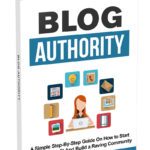In today’s fast-paced professional world, technical skills and knowledge are no longer the sole determinants of success. Emotional Intelligence (EQ) has emerged as a key factor that can significantly influence your career trajectory. Understanding and managing your emotions, as well as those of others, can be the differentiating factor that propels you to success. In this blog, we’ll explore the profound role that emotional intelligence plays in professional success and how you can cultivate it.
What is Emotional Intelligence?
Emotional Intelligence, or EQ, refers to the ability to recognize, understand, and manage our own emotions, as well as the emotions of others. It involves being aware of how emotions influence behavior and being able to navigate social complexities with ease. EQ is divided into five key components: self-awareness, self-regulation, motivation, empathy, and social skills. Each of these elements contributes to our ability to build relationships, make decisions, and lead effectively.
Why Emotional Intelligence Matters in the Workplace
In the workplace, Emotional Intelligence is crucial for several reasons:
- Enhanced Communication: Professionals with high EQ are better communicators. They can express their thoughts clearly and listen to others, fostering an environment of open communication.
- Stronger Relationships: EQ enables individuals to build and maintain strong relationships with colleagues, clients, and stakeholders. This is particularly important in teamwork and leadership roles.
- Improved Leadership:Leaders with high emotional intelligence are more effective because they can inspire and motivate their teams, manage conflicts, and make decisions that take into account the emotions and needs of others.
- Better Stress Management: High EQ helps professionals manage stress and stay calm under pressure. This is especially valuable in high-stakes environments where stress can negatively impact performance.
- Increased Adaptability: The ability to adapt to change is crucial in today’s dynamic work environment. Emotional intelligence allows professionals to be more flexible and responsive to changing circumstances.
How to Develop Emotional Intelligence for Professional Success
Cultivating emotional intelligence is a lifelong process that requires self-reflection, practice, and feedback. Here are some strategies to help you develop your EQ:
- Practice Self-Awareness: Regularly reflect on your emotions and how they impact your thoughts and behavior. Journaling and mindfulness practices can be helpful tools.
- Enhance Empathy: Put yourself in others’ shoes to understand their perspectives. This will improve your ability to connect with others and build stronger relationships.
- Improve Your Social Skills: Work on your communication, conflict resolution, and teamwork skills. Effective communication is at the heart of emotional intelligence.
- Manage Your Emotions: Learn techniques to regulate your emotions, such as deep breathing, meditation, or taking a step back from a stressful situation before reacting.
- Seek Feedback: Ask for feedback from colleagues, mentors, or friends to gain insight into how others perceive your emotional intelligence.
Conclusion
Emotional Intelligence and professional success are deeply intertwined. As the workplace continues to evolve, EQ will only become more critical in determining who thrives and who falls behind. By developing your emotional intelligence, you can enhance your communication, leadership, and adaptability skills, positioning yourself for long-term success in your career.






















